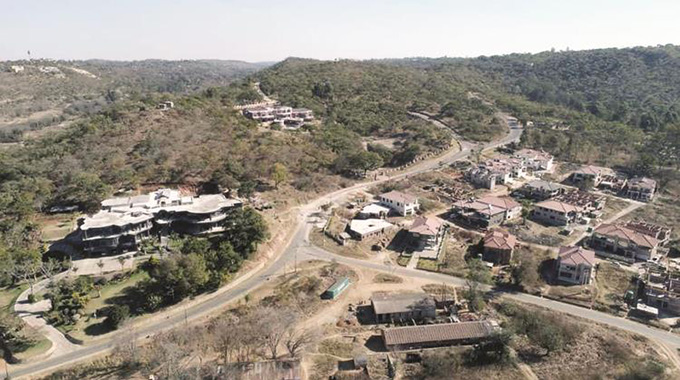Sanctions compromise nation’s family nucleus

Ruth Butaumocho
African Agenda
Over the years, thousands of men and women from Africa leave their home countries to go abroad in search of opportunities.
Living off the narrative that “the grass is greener in the North” where colonisers came from, thousands of youths and the economically active ages leave to various destinations.
The majority risk life and limb on the perilous trip across borders, rivers and seas in search of a better life.
While others might not be that courageous to navigate their way into the dangerous waves of the Mediterranean Sea and risk drowning, they cross into neighbouring countries, in anticipation of an El Dorado of some sort.
Stories are too of people who drowned or were swept away by the Limpopo River as they attempted to seek a better life down South.
Hundreds of Somalis navigate dangerous forests and mountains and dice with dangerous animals, while making their way to Zimbabwe or South Africa in search of opportunities.
Faced with the possibility of queuing for a few jobs, high levels of poverty and dim prospects of a better future within their countries, the majority eventually opt to leave.
While others have fared well after leaving their home countries and have seemingly settled well, it has not been a bed of roses for those who often find the going difficult and eventually resort to crime.

Owing in part to labour shortages in certain sectors, an expanding global economy and the long-term trend of ageing populations, migration, however, brings with it complications which should not be there if there was no external interference in African governance issues.
Former United Nations secretary general the late Kofi Annan couldn’t have put it better when he said migration brings with it “many complex challenges”.
Some of these challenges and issues include human rights abuse, economic challenges, labour shortages and unemployment, the brain drain, multiculturalism and integration and flows of refugees and asylum seekers.
Perhaps what Annan, was referring to was the undue influence that the West has over its African counterparts that stifles development to such an extent that sovereign countries are not able to provide and plan for their people without restrain.
Africa boasts of vast natural resources that range from farmland, forests to the oil reserves, mineral deposits and its waters.
Outside the challenges Africa faces, external interference continues to hamper the continent’s efforts to fully realise its potential.
The chronic instability and violence that characterises everyday life in some African countries is to a great extent influenced by external interests at play within these nation’s political trajectory.
Several African countries are already under siege from exploitation by former colonies who are putting unnecessary economic, social and political pressure on sovereign states, to abide by economic templates, which leave these African states worse off than they were.
Years after its dismal failure to spur economic growth, it still boggles the minds what really was the purpose of the Economic Structural Adjustment Programmes that were foisted on African states as conditions of getting financial assistance from the Bretton Woods Institutions.
Instead of making economies several African countries such as Zimbabwe grow fast, the structural adjustment programmes actually had opposite effects.
Rather than spur economic growth and employment, the expected dividends of ESAP did not materialise.
Companies embarked on retrenchments and thousands of employees lost their jobs.
Families were thrown into turmoil and could barely survive.
Poverty levels rose sharply so much that countries had no option but to shelve the programme and innovate.
Those countries that dared to chart their own economic trajectory without going with a begging bowl to the West were slapped with sanctions, further worsening poverty.
Zimbabwe is currently reeling under the effects of economic sanctions that were imposed following its decision to distribute land the landless majority.
The effects of the illegal economic sanctions imposed on Zimbabwe has adversely affected the country’s social cohesion, resulting in the breakdown of the society’s moral fabric.
Globalisation and migration have also had adverse effects on the family unit.
Some households in Zimbabwe have families that no longer live together as people are scattered across the globe in pursuit of pursue social and economic opportunities.
However, the effects of the economic sanctions slapped on Zimbabwe have become an albatross around the country’s neck as far as growth and development of the family nucleus is concerned.
When the United States and its allies imposed sanctions on the country at the turn of the millennium to force Zimbabwe to reconsider its decision to distribute the land to the landless majority, what followed was serious social disintegration as families struggled to make ends meet under very difficult economic conditions.
With hundreds of companies closing and eventually laying off workers after failing to get lines of credit to sustain operations, thousands of families could barely survive, forcing the majority to leave in search of better prospects.
Their migration was rather disorganised and spontaneous.
Many would have wanted to remain behind and be with their families, but that was not to be.
While some families are now better off economically after one or more members migrated to the North and other continents in search of greener pastures, the same cannot be said of their social well-being.
Moral decadence, failed marriages, violence, infidelity and broken social cohesion among family members are some of challenges that “stretched households”— because of long distances relationships.
A disturbing trend of violence, abuse and other forms of sexual assault are some of the problems being faced by children whose parents are in the Diaspora, trying to earn a living.
Because of costs, hundreds of people are unable to travel and visit their families.
They rely on relatives, who sadly have been perpetuating these heinous acts on children under their guardianship.
Although the West often argues that the sanctions are “targeted”, it is the ordinary citizens who have borne the brunt of the economic sanctions imposed on Zimbabwe.
At this rate, hundreds will continue to navigate perilous waters as they run away from a country that is under siege from the effects of sanctions.










Comments